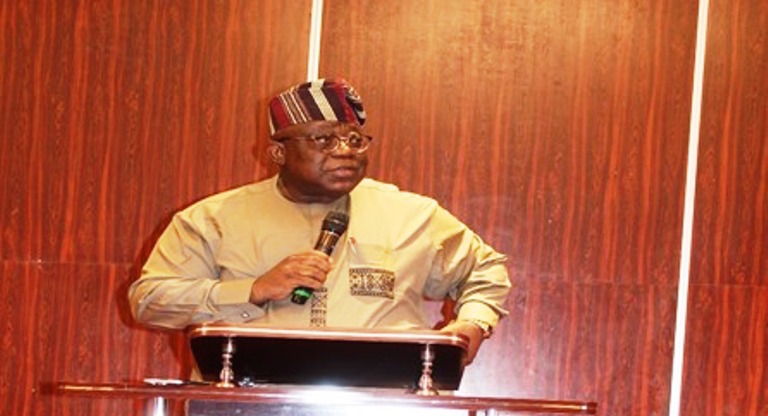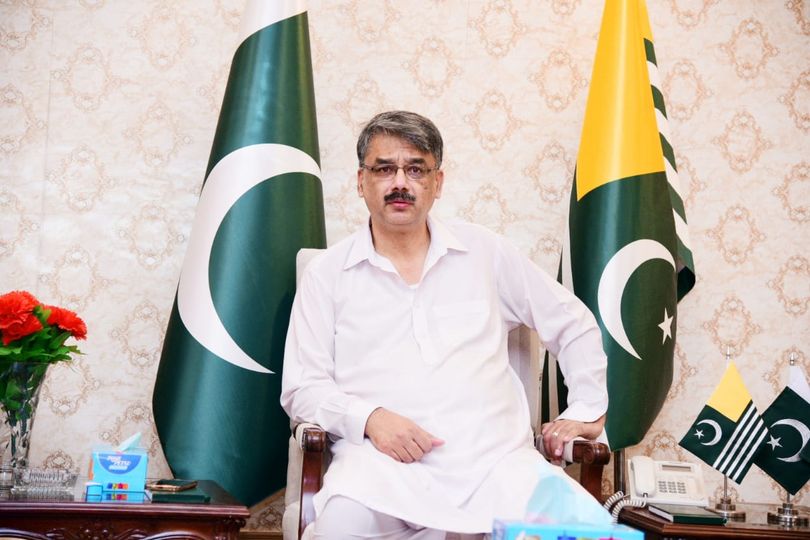71 years after, FCSC unveils robust strategic plan to transform Nigeria’s Federal Civil Service
By danivert,President Bola Tinubu
Copyright thesun

From Juliana Taiwo-Obalonye, Abuja
In a bid to deepen reforms and reposition Nigeria’s Federal Civil Service for the 21st century’s governance demands, the Federal Civil Service Commission (FCSC), on Monday unveiled a strategic plan at the FCSC Strategic Plan Stakeholder Validation Workshop in Abuja.
Chairman of the Federal Civil Service Commission (FCSC), Tunji Olaopa, described the validation workshop as a pivotal moment in the Commission’s transformation journey, emphasizing the need to validate the medium-term strategic roadmap aimed at consolidating reform initiatives introduced by the 10th Commission since its inauguration by President Bola Tinubu on December 13, 2023. “This plan is our response to the President’s charge for us to reposition the Federal bureaucracy, making the Commission a catalyst for deepening and consolidating ongoing transformation efforts,” he stated.
Reflecting on the reform trajectory so far, Olaopa acknowledged that the initial repositioning plan, implemented over the past one and a half years, lacked comprehensive diagnostic research and stakeholder engagement, resulting in significant gaps. “It became clear that our roadmap needed more evidence-based concrete strategies, change management programs, and carefully crafted projects to truly assure a transformative journey,” he explained.
The new strategic plan focuses on six core areas. First, it aims to strengthen the FCSC’s constitutionally mandated independence, oversight of Ministries, Departments and Agencies (MDAs), and public accountability mechanisms. Second, it prioritizes reinforcing meritocracy through competitive promotion exercises, structured interviews, and transparent digital recruitment platforms that enable nationwide competitive exams.
In partnership with the Office of the Head of the Civil Service, the strategy also seeks to institutionalize performance-based career management systems. “Linking promotions and career progression to key performance indicators, citizen feedback, and revised annual appraisal reports will be fundamental for enhancing accountability,” Prof. Olaopa remarked. The adoption of automated HR systems and digital transformation stands central to fostering public trust and operational agility.
Further, ethical frameworks, internal audit systems, and whistle-blower protections are set to be embedded within the Commission’s key operations. The plan also aims to deepen the meritocratic and transparent implementation of the federal character principle, ensuring fair representation for women and persons with disabilities in line with the Constitution.
“These six strategic emphases are lessons drawn from global best practices, especially from Commonwealth Civil Service Commissions in countries such as the UK and Canada,” he said. “We must recover lost legal and operational independence to shield career management from political interference. Opaque, manual processes will be replaced by digital recruitment platforms and performance-based promotions to deepen meritocracy and transparency.”
Olaopa emphasized the urgency of firmly instituting performance management systems, accelerating digital transformation, and ensuring inclusivity and equity via proper implementation of the Federal Character principle and the Disability Act.
Underpinning this strategy is a theory of change that if merit-based processes, inclusivity, ethical practices, and digital reforms are effectively implemented, then the Nigerian civil service will leapfrog in its transformation, restoring its lost glory and aligning with national development frameworks.
The workshop aims to gather key stakeholders to review, affirm, and confirm the draft strategic plan’s relevance and feasibility moving forward. Prof. Olaopa outlined the Commission’s vision for the next three years: professionalizing the Commission’s Secretariat with skilled personnel, driving a culture-change program aligned with the new mission and values, and prioritizing digitization, staff training, and welfare to enhance credibility and reduce staff turnover.
He highlighted plans to strengthen financial management, internal audit, and resource allocation, alongside media reforms to rebuild public trust. A robust monitoring and evaluation system, including digital dashboards and periodic evaluations, will support continuous progress tracking.
In closing, Olaopa appealed for shared passion, support, and goodwill from stakeholders, stating, “This is not a journey we can take alone. Together, we can rebuild the broken walls of our profession and pass on a capable public administration system to the next generation, one that can effectively support Nigeria through the Fourth and Fifth Industrial Revolutions.”
In her key remarks, Head of the Civil Service of the Federation, Didi Walson-Jack, praised the Federal Civil Service Commission for its foresight and steadfast commitment in crafting a Strategic Plan that will steer its operations effectively in the years ahead. She highlighted that the Commission’s decision to engage stakeholders at this critical stage demonstrated a profound understanding of the need for inclusiveness, collaboration, and shared ownership in driving reforms within the Civil Service.
“The Civil Service remains the engine room for policy formulation and implementation in Nigeria. For it to discharge its role effectively, our institutions must continuously reposition themselves to meet evolving governance challenges, adopt international best practices, and deliver services efficiently to Nigerians,” she stated. She reinforced that the FCSC Strategic Plan goes beyond guiding the Commission alone; it is a vital enabler for the wider Federal Civil Service Reform Agenda.
Walson-Jack reaffirmed the full commitment of her office to partner with the Commission and all stakeholders to ensure that this Strategic Plan, alongside the Federal Civil Service Strategy and Implementation Plan (FCSSIP), realizes its objectives. She emphasized their shared vision of developing a world-class public service characterized by professionalism, accountability, meritocracy, and performance orientation to fast-track national development.
She also acknowledged the continuous support of development partners, especially the UK’s Foreign, Commonwealth and Development Office (FCDO), pointing out that their collaboration signified a global recognition that reforming Nigeria’s public service is a priority transcending national borders.
Earlier, Permanent Secretary of the Federal Civil Service Commission (FCSC), Philip Ndiomu, outlined that the draft Strategic Plan for 2026 to 2030 had been meticulously developed through expert collaboration within the Commission, designed to both reflect its constitutional mandate and align tightly with the Federal Government’s broader reform agenda.
He recalled the Federal Civil Service Strategy and Implementation Plan (FCSSIP 25), championed under the visionary leadership of Head of the Civil Service of the Federation. He emphasised that the FCSC’s plan draws heavily from the FCSSIP 25 pillars, demonstrating deliberate alignment to ensure synergy and coherence in advancing Nigeria’s civil service reforms.
“This validation workshop is our chance to scrutinize the document, test its strategies against real-world challenges, and enrich it with your invaluable perspectives,” Mr. Ndiomu said, urging participants to contribute actively in shaping a Strategic Plan that is not only aspirational but also practical and impactful. He noted the workshop would help forge a unified path for the Civil Service to remain the engine of national development.
Speaking with conviction, he reaffirmed the Commission’s role as the constitutionally mandated body overseeing recruitment, promotions, and discipline within the Federal Civil Service. “Our collective resolve is to move in one direction, to deliver as one, and to serve the Nigerian people with excellence,” he said.
Ndiomu reiterated the Commission’s commitment to upholding these values through the new plan. He enjoined all stakeholders and staff to engage meaningfully in this process, underscoring that strong collaboration was key to success.



